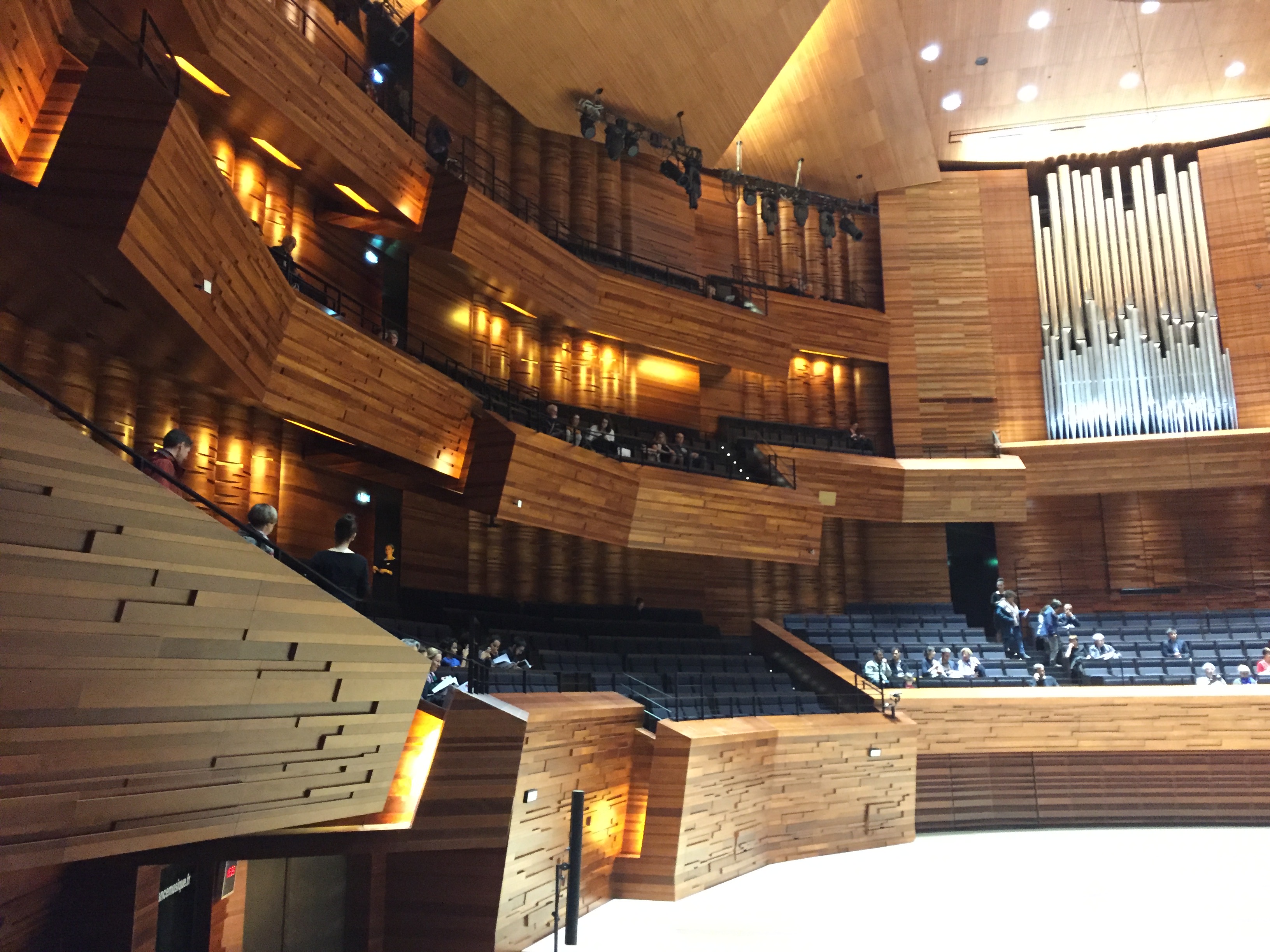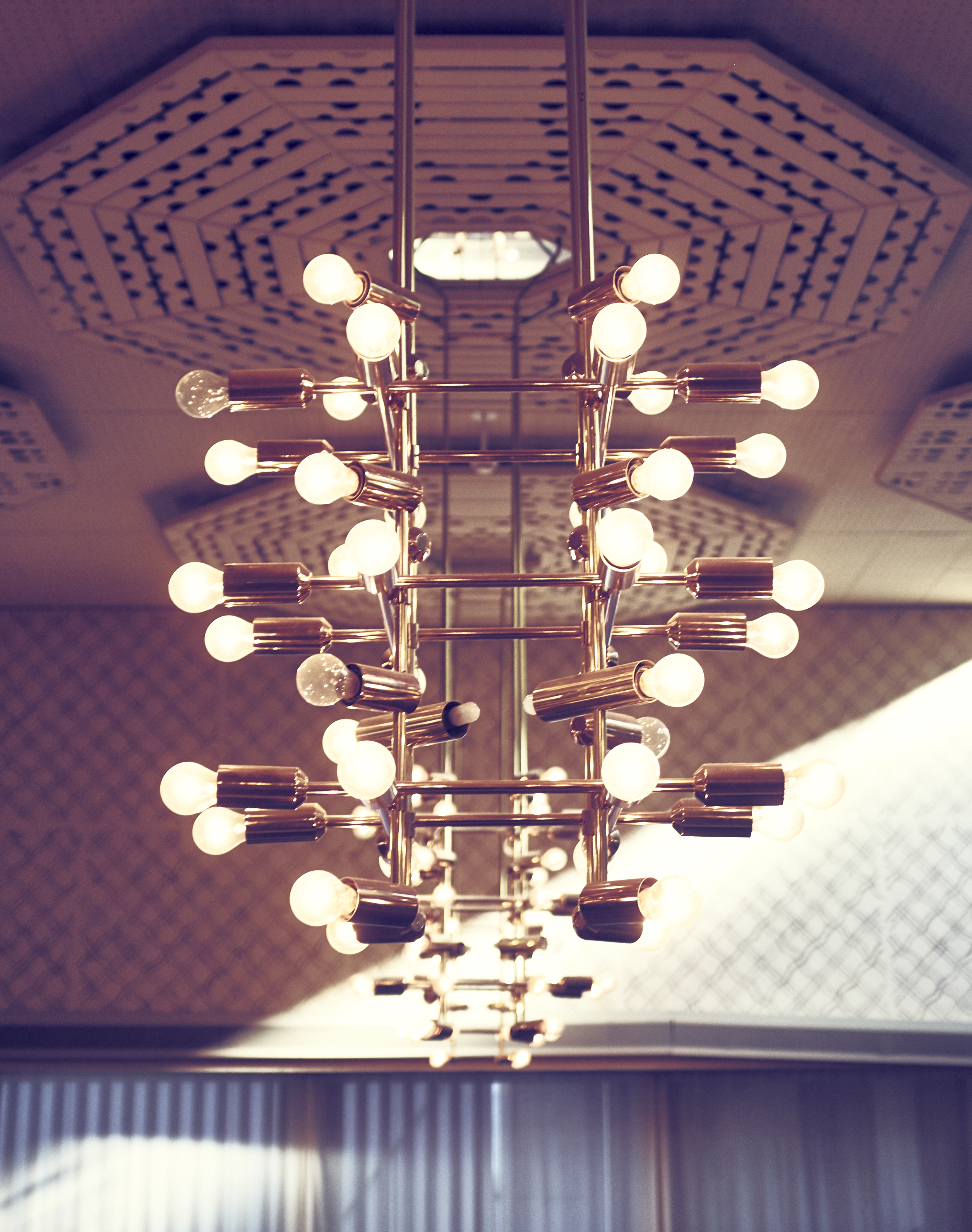Janine Jansen
I presume if you’ve followed this blog for a bit (or read it’s subtitle) you’ve figured out that I really like Brahms.
You’ve probably also noticed that I really like Janine Jansen, and see her as one of the best violin players alive.
Last year I went through a series of concerts aiming to see all my favourite violin players live, and succeeded being in concerts of Alina Ibragimova, Julia Fischer, Lisa Batiatishvili, Isabelle Faust, and Janine Jansen all in 2018. What a year.
The concert I saw with Jansen, also at the Tonhalle Maag, was with her husband Daniel Blendulf conducting, and playing a contemporary composition by Swedish composer Anders Eliasson. I didn’t get to write about this concert here on this blog, but I found the concert surprisingly enjoyable (I’m typically not very much into any classical music after 1930).
But now, when Jansen came back to Zurich playing Brahms of all violin concertos, I knew I had to be there, after all, I had given her Brahms concerto recording with Pappano a five star review here.
Brahms Violin Concerto & Symphony No. 3 – Janine Jansen – Herbert Blomstedt – Tonhalle Orchester Zurich – Tonhalle Maag, June 28, 2019

Well, to make it short, I’m so happy I went. This was just a fantastic concert. Blomstedt chose a relatively slow tempo for the first movement. This can have the risk of being a big boring and drawn out. But obviously, none of that here. Janine Jansen put her energy into every single note that the audience was following, completely mesmerised.
The orchestra, in spite of this being the third consecutive night of performing the same program, was following with the same energy and power, clearly enjoying themselves.
To quote Felix Michel, who did a fantastic review on the NZZ (here, in German), the word he used several times was “Wunder” (miracle). Yes, that is kind of a fitting description of what we witnessed yesterday in the scorching Zurich summer heat (>36° Celsius, I’m happy the Tonhalle Maag seemed to have some form of AC).
Herbert Blomstedt
I haven’t written a lot about Herbert Blomstedt yet. I’ve last seen him, again conducting the Tonhalle playing Mendelssohn’s violin concerto, another magnificent evening.
He isn’t one of those flashy maestros that will make headlines, but like many others, e.g. Haitink, is much more of a Musician’s musician.
At the age of 91 (he’ll soon turn 92, but is already scheduled to appear back in Zurich in the fall), when he’s up there conducting, he’s more alive and present than many 20 year olds.
Now to the 3rd symphony. Here, the energy taking from the furious beginning with the violin concerto certainly continued after the break. The two most outstanding moments here were the famous 3rd movement, which you may know from several commercials and other uses in the movies, but even more impressively in the finale. Unlike most symphonies, this finale ends very quietly.
Blomstedt really made us enjoy this quiet ending, not dropping his hands (no baton) for several seconds after the last note expired, to keep the quiet tension.

As always, when the final movement lacks a climatic finish, the applause came more slowly. However, it became even more powerful, especially after it became apparent that one of the musicians of the Tonhalle had his last day pre-retirement and was showered with flowers and gifts. The applause lasted for a long time. Well deserved for a fantastic end of a season.
Looking forward to the next season, where my admired Paavo Järvi will take over the orchestra.














